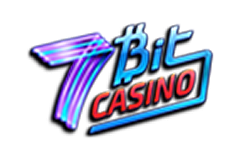What is Bitcoin?
Bitcoin is a kind of digital currency that exists in electronic form only – bitcoins are contactless. In the financial lingo, all cryptocurrencies other than bitcoins, are known as altcoins. Electronic money is digital payment instruments that can be used for online transactions, buying values and paying for services on the internet. Bitcoin was invented in 2009 and it is now the longest-standing cryptocurrency in the world. Though the entire bitcoin network consumes more energy than Czech Republic and Switzerland , according to a Cambridge research, digital currency looks increasingly attractive in terms of day to day utility and in many more specific fields like online gambling.
Without being too encyclopedic, bitcoin is conventionally described as a decentralized financial system. This means it is not regulated, minted or issued by any central body. Besides, Bitcoin is also defined as a peer-to-peer network – this indicates that all transactions between traders are recorded in a public ledger and the recordings are never deleted or lost. Everyone who has ever owned any portion of a bitcoin leaves a permanent trace in the blockchain.
Unique features of Bitcoin
There are a few peculiar things that make Bitcoin so special. Being a peer-to-peer means of payment, it enables the involved parties to exchange funds (bitcoins) without engaging a third-party intermediary. In traditional banking, each money transfer passes through a long chain of banks and processors until finally reaching the recipient – this is needed to verify a transaction and assign the title of ownership of the transferred money to a new person or entity. In Bitcoin, the proof of ownership is performed by recording transaction details into a publicly accessible ledger.
There is a limited supply of bitcoins, which is estimated to slightly exceed 21 million. Due to the fact that bitcoins are retrieved by mining, around 85% of all potential bitcoins have been created as of writing this and mining of new units will cost increasingly more in the years ahead. On reaching the 21m cap (this will happen in the middle of the 22nd century), no more new bitcoins will be unlocked. Today, every 10 minutes or so a new bitcoin enters the blockchain network.
Bitcoin units and price
A bitcoin is not a solid unit. Like many other fiat currencies, it is divided into subunits, the smallest of which is known as a satoshi (equal to one hundred millionth of 1 bitcoin). There are also subunits of greater denominations such as micro- and millibitcoins. In exchanges, bitcoin are traded in different amounts, starting at one satoshi.
The cost of one bitcoin is extremely volatile. On bitcoin exchanges all over the world, its cost changes every second and is subject to many factors. In the early days of its existence, one was able to buy a bitcoin at less than a cent, while the highest BTC value was recorded at $19.783 in December 2017. As of this writing, a bitcoin price fluctuated around $8600 and $9000 (125,000 to 135,000 rands). The high volatility of the bitcoin exchange rate makes it an unreasonable investment for many people, especially those new to the financial sphere.
Bitcoin anonymity
The digital currency enables users to exchange payments with a satisfactory level of confidentiality. But despite a common belief, Bitcoin is not completely anonymous. As said above, every transaction is kept intact in a public ledger, thus making it technically possible to track the entire chain of transactions to the original sender. In 2015, a high-ranked FBI officer said their investigators were able to follow Bitcoin breadcrumbs because Bitcoin does generate abundant public data. Skilled special force investigators follow bitcoin blockchains, trying to uncover sellers’ IP addresses, and most often they succeed, no matter how many hands bitcoins have changed. Considering this, the Bitcoin system is called pseudo-anonymous, meaning it can provide a sufficient level of anonymity but transactions are still not completely anonymous.
Bitcoin legality
As far as is known for today, most countries including South Africa have not banned bitcoins and other cryptocurrency as a means of payment. Increasingly more countries are creating a legal framework and regulations for bitcoin circulation in order to integrate the cryptocurrency into the existing financial markets. In South Africa, bitcoin gambling is also legal.
Depositing bitcoins into online casinos
As bitcoins have a specific monetary value, some online casinos accept them for further wagering. In case of gambling sites, bitcoin transactions are not anonymous at all since every reputable casino, which operates in a legislative environment and is bound by licenses, conducts verification of a user at the stage of withdrawing money. Actually, depositing bitcoins into an online casino, a user can normally keep his privacy secret yet the online casinos usually ask for government issued ID and other proofs of identity when releasing bitcoins back to the user. Whatever, using bitcoins in gambling is a convenient alternative to fiat money as bitcoin transactions are fast, secure and usually come at no extra cost.
Transaction fees
The bulk of transactions requires no fee but users may add a small fee at their discretion in order to make a confirmation faster and avoid excessive petty cash transactions that overcharge the bitcoin network. In some cases, a fee is mandatory and its amount tends to be independent of the bitcoin amount sent. When creating a transaction, a Bitcoin software tries to predict a fee that would be set on the transaction. The exact manner in which fees are debited is not known but there are a few regularities that enable experts to draw an inference: if many tiny transactions are made within a short time, the sender is most likely to pay a fee, though very small. For example, sending BTC10 in a single transaction may be accompanied with a BTC0.0005 fee, while making 10 trades at BTC0.1 each may lead to a BTC0.005 fee for each payment.
Summary
The Bitcoin economics is still evolving with an ever-greater presence of this cryptocurrency on the gambling market and other gambling establishments. Despite constant oscillations of the price, bitcoins remain the most popular and valuable digital currency with a bright future ahead. Bitcoin investments should be a labor of professional finance experts but common South African users can enjoy many benefits of Bitcoin when playing in online casinos.






